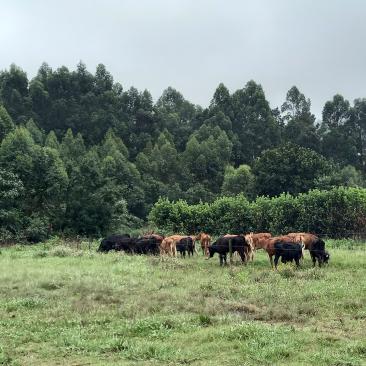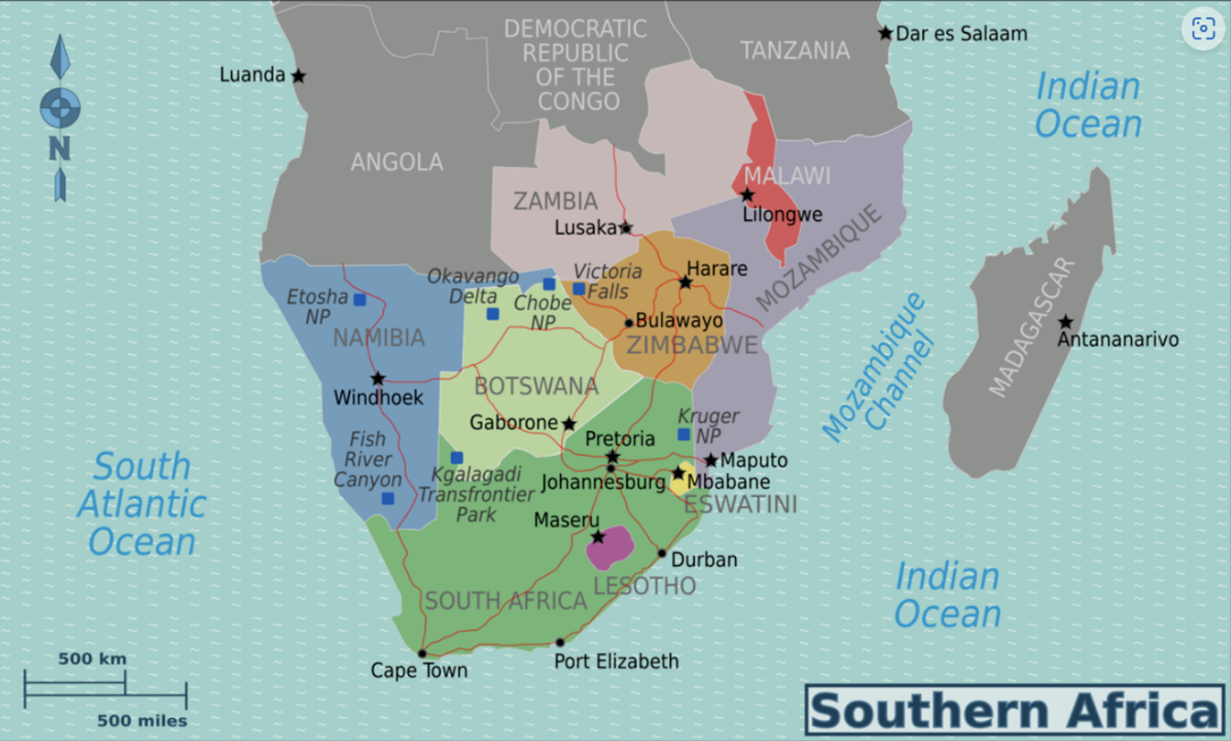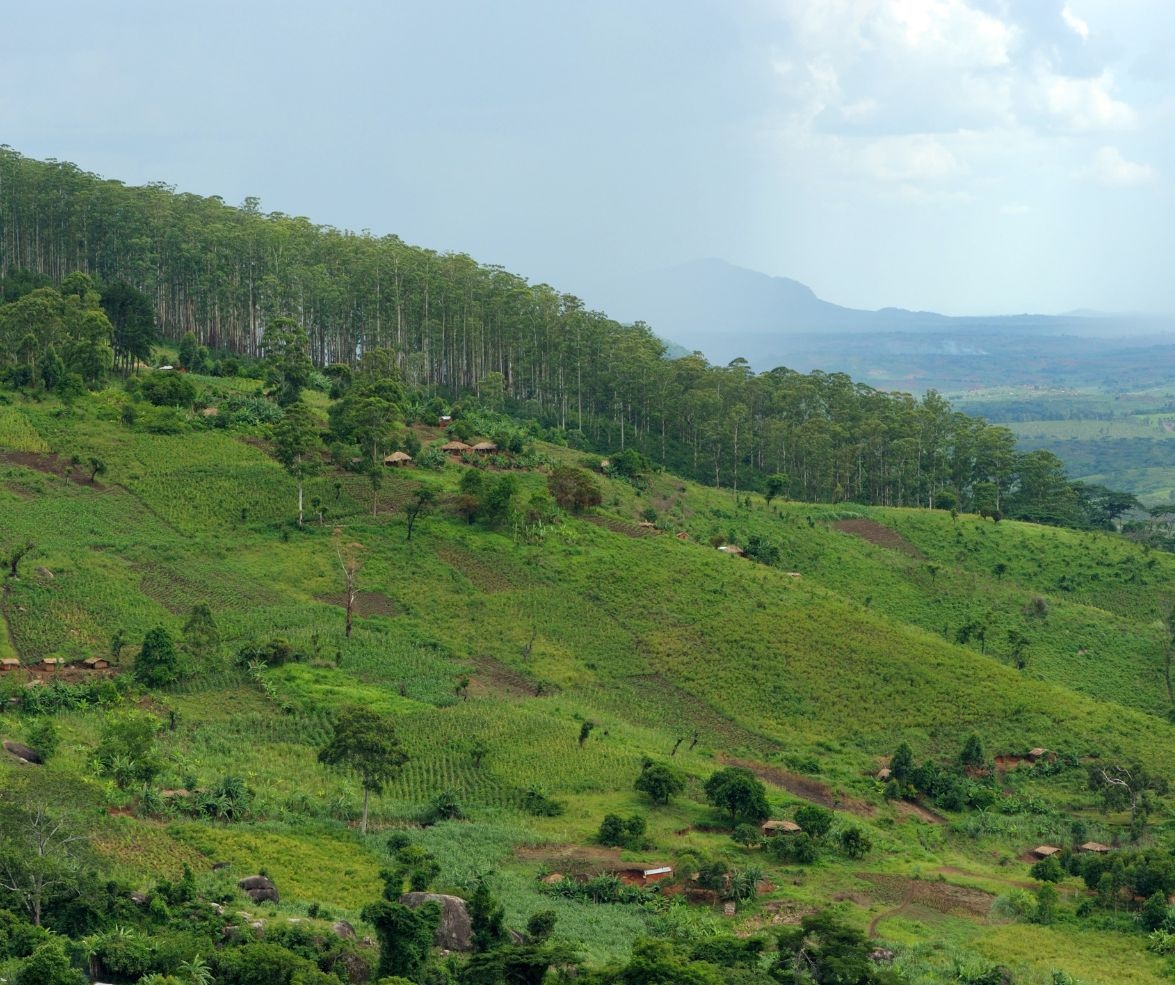
Certification Opportunities in Southern Africa
Southern Africa, encompassing Angola, Comoros, Botswana, eSwatini, Lesotho, Madagascar, Malawi, Mauritius, Mozambique, Namibia, South Africa, Zambia, and Zimbabwe, presents a diverse and rich forestry landscape. This region is characterized by a mix of natural and plantation forests, each playing a vital role in the ecological, economic, and social fabric of the area.

Forest Resources in Southern Africa
Natural forests in Southern Africa include tropical rainforests, miombo woodlands, mangroves, and dry forests. These forests are home to an array of biodiversity, providing habitats for countless species of flora and fauna. For instance, Madagascar's forests are renowned for their unique biodiversity, with many species found nowhere else on Earth. Similarly, the miombo woodlands, spanning countries like Angola, Zambia, and Zimbabwe, are critical for biodiversity and the livelihoods they support.
Plantation forests, primarily established for commercial purposes, consist of fast-growing exotic species like pine, eucalyptus, and wattle. South Africa leads the region with a well-developed plantation forestry sector that significantly contributes to the national economy through timber, pulp, and paper production. Other countries like Mozambique, Zambia, Eswatini and Zimbabwe also have notable plantation forestry activities, though on a smaller scale compared to South Africa.
These plantations provide raw materials for various industries, generate export revenue, and create employment opportunities. The management of plantation forests is highly industrialized, focusing on maximizing yield and efficiency while increasingly integrating sustainable practices to minimize environmental impact.
Forest Stewardship Council® (FSC®) Southern Africa has about 3.4 million hectares certified under FSC Forest management certification and about 234 Chain of Custody certificate Holders.
These certificate holders have unlocked benefits associated with FSC namely.
- Sustainable management of forest resources
- Association with a globally recognised brand
- Access to markets that only procure sustainably sourced timber products.
- Credible, protection of worker’s rights, high environmental standards, and high stakeholder engagement certification system
FSC Southern Africa has seen an increase in the organisations that want to take advantage of the benefits that come with FSC certification. FSC is currently supporting seven projects throughout Southern Africa that are in the process of adapting their management systems to Sustainable Forest Management.
Experience from the Field: Challenges to Certification
Despite the potential benefits, several hindrances impede the widespread adoption of Forest Stewardship Certification in Southern Africa. These include economic, social, and institutional barriers that must be addressed to promote sustainable forest management.
Economic Barriers
Most Southern Africa’s countries have been through economic turmoil over the past few years, resulting in neglect in implementing sustainable management of forests. This affected silvicultural operations such as replanting, weeding and maintenance of forest resources in several countries in the sub-region.
In addition, there has been rampant timber theft evident from the plantations and the natural forests. This is because of economic pressure to the communities in the forestry area and financial costs forest companies and government have incurred to protect the timber resources.
Moreover, the economic benefits of certification, such as access to premium markets and improved marketability, may not be immediately evident to forestry operators. Without clear economic incentives, there has been a hindrance to certification.
It is without a doubt though that FSC certification results in improved investments from stakeholders and market access for products resulting from implementation of sustainable forest management.
Social Barriers
Social barriers, including land tenure issues and community rights, which also hinder certification efforts. In many parts of Southern Africa, land tenure is complex and often insecure, with overlapping claims and unclear ownership. This uncertainty can deter investment in sustainable forestry practices and certification. To achieve FSC certification it is important that the certificate holder proves their tenure land use rights. This has been a challenge especially for small scale farmers in the sub-region where such proof does not exist, or the authorities are not efficient to provide timeous proof required.
Moreover, the rights and involvement of local communities in forest management are crucial for the success of certification schemes. Ensuring that certification processes recognize and respect the rights of Indigenous and local communities can be challenging, especially in regions with weak governance and social conflicts.
Institutional Barriers
Institutional barriers, such as inadequate regulatory frameworks and weak enforcement of forestry laws, pose significant challenges to certification. In some countries, the lack of clear and consistent forestry policies can create an uncertain environment for certification. Furthermore, insufficient capacity and resources within forestry departments and agencies can impede the implementation and monitoring of certification standards.
Corruption and lack of transparency in the forestry sector can also undermine certification efforts. Ensuring that certification processes are credible and trusted by stakeholders requires strong institutional support and governance.
To date FSC Southern Africa is working towards introducing FSC through the government and Standard development Groups for all countries where it operates. This is to develop relationships, showcase the benefits that the government authorities can derive from certification and to help streamline sustainable forest management in respective countries. In addition, FSC is involved in a drive to build institutional capacity through training of certificate holders and forestry departments employees as part of implementation of FSC certification across the sub-region.
Development of Forestry Standards in the countries
Certification in Zimbabwe, Zambia and Mozambique is in the process of being formalised by the updating of the Forestry Stewardship Standards in these countries. All three of these countries have been using Standards developed in the early 2000’s by Technical Working Groups using Version 4 of the FSC Principles and Criteria (P & C). Following the FSC Board of Directors decision in 2022 to ensure the updating of all national Standards to Version 5 of the P &Cs, there has been a process managed by the Policy and Standards Unit to have the Standards updated.
This process began in 2023 for Zimbabwe. Zambia and Mozambique with the signing of a contract between FSC and the Soil Association to develop Interim Forest Stewardship Standards (IFSS) for these countries. The consultants started work in mid-2023 with the registration of the processes, stakeholder mapping and the development of the High Conservation Value (HCV) framework and the Draft 1. The first stakeholder consultation meetings were held online or physically in January 2024 with as wide an audience as possible of local forestry experts from the economic, social, and environmental interest groups. Each of these meetings generated feedback on the draft. A one or two-day workshop was held in each country with invited stakeholders generated most of the comments and suggestions for local adaptation of the Standards. These 2nd drafts will be posted for public comment for a 30-day period from the end of July 2024.

The new IFSS for these countries provides for greater assurance of holistically sustainable forest management with improved choice of indicators that are practical and auditable. These will apply to certification from mid-2025 when the Standards are approved for publication by FSC. These revised and updated Standards also align with new routes to certification designed to facilitate certification for small holders and communities via a stepwise improvement process - the Continuous Improvement Process (CIP) and the Controlled Forest Management Standard (CFM).
Collectively, these Standards will help to improve certification opportunities in the sub-region.
Conclusion
FSC certification and its supporting tools are an invaluable vehicle to ensure sustainable forest management underpinned by social, environmental, and financial development in the sub-region and with the efforts brought about by innovation from FSC certification there are solutions for almost all forest sizes and different stakeholders. Please contact us to take advantage of the benefits that come with Forest stewardship certification.
